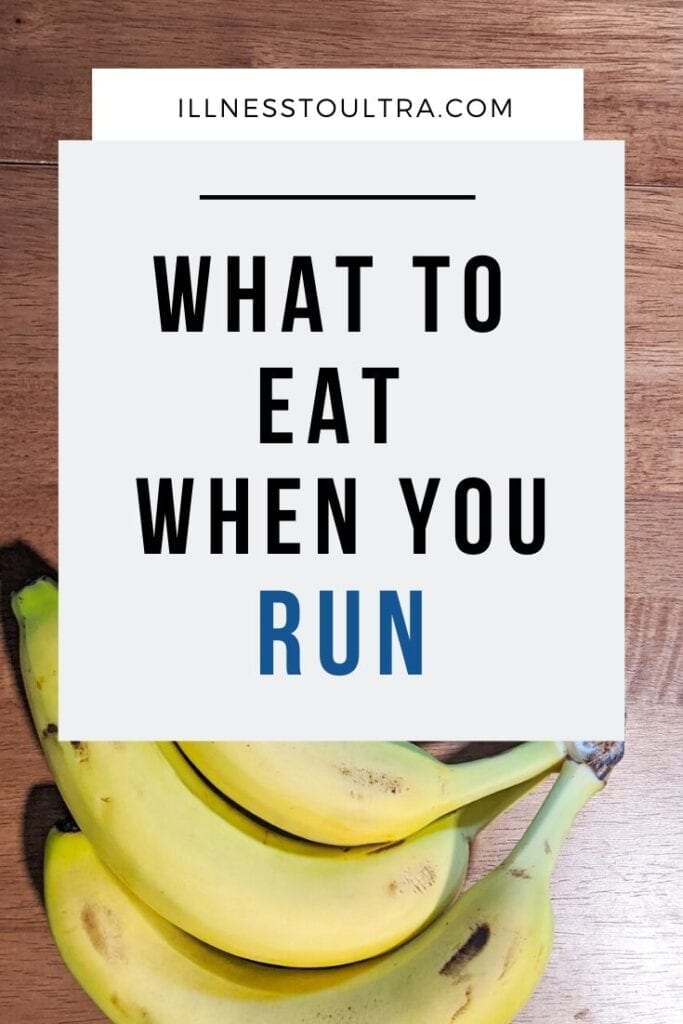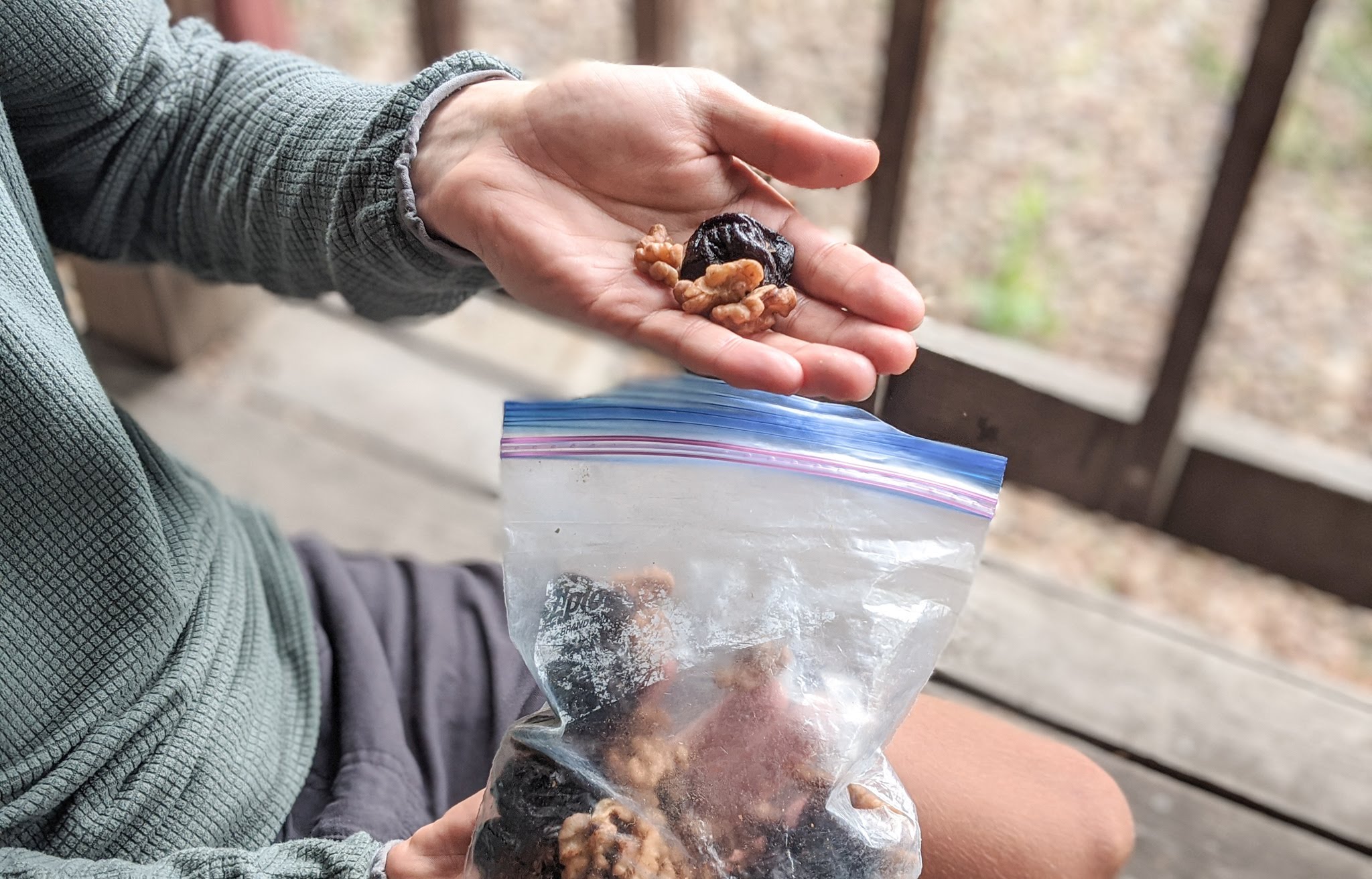Now, I don’t believe the standard advice you’d get from your running magazine or random blogs. I don’t think they touch on or answer all the questions that should be asked when you are fueling your body to run. And I have a slightly different take on endurance nutrition, which I want to talk about in this post.
Maybe your running routine has increased enough to require you to intake some fuel when you run. Unfortunately, you can’t just stop for a scrumptious Indian buffet in the middle of your run. (Ok, we’ve done that before – and it was delicious but rough on the digestion) You’re going to have to pick something easy to digest and can eat on the move.
Many runners might reach straight for the Energy Gels, which is something I’ve done in the past, too. I understand they’re easy to eat when you’re on the bike or running (apart from tearing the top off, bah why is that so hard!). But there are a couple of outlying issues I have with Energy Gels – and I’ll get to that later.

One key point is that you want to make sure that you’re fueling yourself before you get hungry or start feeling tired. Equally as important is ensuring that you chase your fuel up with some suitable fluids. That means you need a timed fueling plan, and you need to stick to it!
If you want more info about the macronutrients you require and when to eat, have a read through Mike’s guest post here on Illness To Ultra. That really gets deep into the numbers.
Here I’m going to talk about the type of fuel you choose to fuel your run. And it’s not going to be what you see on every other fitness site or blog. #sorrynotsorry
The Energy Gel is a go-to for most runners. There are so many “sports” brands out there, all basically selling sweets for adults. Yeah, like those candies you tell your kids not to eat because it’ll rot their teeth.
Let’s go through a few reasons I’d advise against using gels and any other sugar-laden product.
First, the form the sugar comes in is one of the most highly processed out there! Go on, turn around your gel pack and try and read the ingredient list. Can you pronounce any of them? If you are gluten-free like me, beware that some of those long weird names can be derived from wheat.
Second, I’m not throwing back these gels in my normal healthy life routine, so how can I expect my body to react positively while running? Now, this is where everyone is different. I used to throw back gels, and benefit from the huge rush (and crash) it gave me on a run. But I never thought about how my gut would go crazy with a sugar hit like that. It calls for a much more measured approach.
Now I know this was probably due to many factors, be it a fungal overgrowth or the increased dehydration caused by the gels drawing water out of the body. Both situations are pretty bad, and if you’ve ever experienced gas, bloating, or diarrhea, I’d strongly suggest you change your fuel now!
Third, they’re just plain not healthy for you. You may be burning off the carbs in the packet, which is excellent but not great for your health in general. Plus, if you’re getting your fueling calculations are wrong, you could possibly be feeding that sugar frenzied microbiome everything it desires. And if you don’t know why that’s a bad thing, go ahead and download my gut-health freebie. You’ll be convinced at that point.
If you’re using gels on your runs multiple times per week, the damage will increase, and you’ll undoubtedly be out of running for a while at some point, if not worse.
Food?
Yeah, why not food? It’s worked all your life, and for the entirety of human existence, so why stop now?
Ok, so there are so many foods out there, so let’s get down to the business of running.
Stick to foods you know you can digest and that are commonly part of your diet. Maybe don’t carry a flask (or thermos) filled with bone broth while running. That’s not practical – but it IS packed full of electrolytes and has a healthy balance of amino acids to stop you from bonking.
Carbs
Ready and available in the short term.
I, for example, occasionally eat dried fruits. I know I can digest them ok and they give me the higher carb balance I need. Choosing dates, raisins, mangoes can all work. It just depends on what your gut feels the most comfortable with, and remember, don’t overdo it.
Another great fruit is bananas because, again, they will give you a carb hit, and also give you a whole lot more. The potassium in bananas will help you replace the electrolytes. They also have a relatively low glycemic index, which will ensure you have a big high and an unbelievable crash.
Lastly, I’d suggest you think outside the box. How about a baked sweet potato? They are a good source of carbs, a bunch of Vitamin C, even more potassium than a banana, and a whole host of other benefits.
All in all, it’s relatively simple here. Look towards fruits that are easier to digest. Obviously, the ones that are easier to carry like dried fruit make the most sense, but if you can incorporate any other fruits/veggies, then give it a try. We often take an apple on our long runs.
What about fats?
Can be helpful for a longer efforts
Fat’s are a little harder to digest, especially while exercising, but that doesn’t mean we should stay away from them altogether. A few nuts here and there can add a little more calorie-dense foods to your run. Plus they have the fat and protein which is essential for very long distances (longer than a few hours).
Now I wouldn’t suggest loading up on a massive dose of oils. I remember reading Scott Jurek’s book and almost being sick when he said he went through a process of trying to run purely on olive oil.
Keep the fat source simple, with a mix of proteins. Because of this, nuts and seeds rule the roost.
The Best Running Fuel
The perfect mix
I’ve talked about healthy fats and some dried fruits that are higher in carbs. You could make a simple trail mix, something I’ve done many times on long runs. When I need a hit during my runs, I reach my hand into my bag and pull out nuts, seeds, and fruit. I know I can digest them because they are all part of my everyday diet, and in the end, they are mainly good for you anyway!
If you want to look at a product that’s easy to carry and has all the functional properties of the above. I’d suggest Larabars. They’re made with super simple ingredients. Just dried fruit and nuts, and they’re in a small, easy packet, ready for you to eat on the move.
If you have time (and a food processor), we love making our own energy bars. Our go-to running ball recipe consists of cashews, dates, and coconut flakes. Easy.
I’d advise staying away from most of the other bars out there because they often sneakily add sugar. Clif bars, for example. Brown rice syrup? But brown rice can be good for you, right? Well, not when you separate the sugar from it. Sugar comes from the sugar cane plant, but it’s the refining process that makes it bad. Nowadays you see tons of plants being refined to essentially create a sugar derivative, sneakily.
The key is simple ingredients you know you can digest.
Conclusion
What foods are you going to take out next time you find yourself on the trails for a few hours? Have I convinced you that real food is the way forward?
There’s so much more that could be said about food before and after your run. And all will have a factor for your running nutrition. If you’re Keto throughout the day, then you’d do better with a Keto-oriented nutrition plan. If you’re vegan, obviously, a vegan nutrition plan would do your best. But let’s save all that for another post.
It’s all personal, so just explore your options, and make them healthy.
